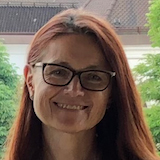Developing engineers through the mentoring process
Many young engineers are aware that all the knowledge that is gained through formal studies at universities, online courses, and tests is simply not enough to become a good engineer and eventually an expert. Demand for skilled network engineers (and software developers) is huge and growing, as is network complexity. Quite a challenging task for the next generation ; )
The tough challenge we have to solve is "how can we help engineers “jump” to a higher level of expertise and efficient problem-solving?”… and an excellent way to help young talents become better is through the mentoring process. The Internet is full of motivational blog posts telling you that mentoring is the right way to go, and you might have already tried to be a mentor to somebody. Did you succeed, or did something in the process or in the relationship go wrong disappointing both you and your mentee?
If you want to be a mentor, or if someone already asked you to help him because they see you as a role model, you should know some basic rules of a successful mentoring process and relationship between mentor and mentee.
Contents
This short presentation will answer these questions:
- What is mentoring?
- What is not mentoring?
- How is the mentoring process carried out?
- What are my responsibilities as a mentor?
- How will I know if the process goes right?
- Does the mentoring process ever stop?
Target Audience
The webinar is for technical experts who are willing to share their knowledge, experiences, and precious time with young engineers.

 Karmen Pepelnjak, MSc. is an independent HR consultant, focusing on talent development through mentoring and coaching processes in the IT industry.
Karmen Pepelnjak, MSc. is an independent HR consultant, focusing on talent development through mentoring and coaching processes in the IT industry.